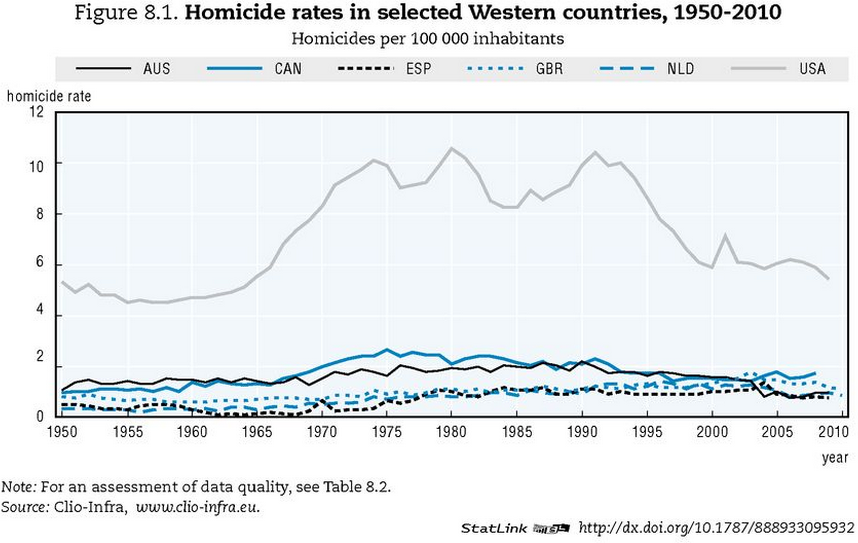Watching U.K Police Confront a Madman is Enlightening

By:
In America, police officers rely upon their firearms much more heavily than in countries such as England, Canada, and New Zealand, but violent crime isn't out of control abroad—in fact, it's higher in the U.S.—and that raises questions about the efficacy of guns in law enforcement. Instead these countries rely on deescalation tactics like the instance in London showed in the below video.
Here's a video that shows exactly how deescalation works.
In this video, an unstable man is seen swinging a machete at multiple police officers in London. Rather than use deadly force to detain the man, however, the officers circle him, maintaining a safe distance while attempting to verbally deescalate the situation. They do this for several minutes before backup arrives with shields that they use to approach and disarm the machete-wielding suspect. He is taken to a hospital and nobody was injured.
Asked if the man would have survived if the scene had taken place in America, public safety consultant Terry Coleman said "no... he would have survived a couple minutes probably."
He went on to say that the lesson to be learned from this video is that "it is doable without firing a firearm."
Fatal police shootings in the U.S.
There have been more than 800 fatal police shootings in the U.S. this year alone, according to the Washington Post. And while most of those cases—about 600—have been in response to violent crimes such as assaults, hostage situations, and carjackings, the apparent frequency of these police-involved shootings has led to widespread calls for reform.
Critics say that American police departments should focus their retraining efforts on deescalation—encouraging officers to limit use of force, even in situations that are ostensibly dangerous. Campaign Zero, a civil rights organization run by Black Lives Matter advocates, argues that revising use of force policies is key to repairing relations between police and the communities they serve. "Police should have the skills and cultural competence to protect and serve our communities without killing people—just as police do in England, Germany, Japan and other developed countries," the organization wrote on their website.
RELATED: The Black Lives Matter Activists Have a Plan: Campaign Zero
They raise an interesting point. Comparing policing practices in the U.S. to those employed in other countries is an illuminating exercise, revealing how officers can effectively reduce crime without relying upon deadly force. Officers are unarmed when they're on patrol in England, Ireland, Norway, Iceland, and New Zealand, and it seems to work for them.
Homicide rate in the U.S.
International data on police shootings does seem to indicate that countries that limit use of force and emphasize deescalation are able to uphold the same (if not better) safety standards than in the U.S. A 2014 report from the Organization for Economic Cooperation and Development found that the U.S. homicide rate has been dramatically higher than other developed countries—including the UK, Canada, and the Netherlands—over the past six decades.
 OECD - oecd-ilibrary.org
OECD - oecd-ilibrary.org
Implementation in the U.S.?
"The practice is rooted in tradition and the belief that arming the police with guns engenders more gun violence than it prevents," Guðmundur Oddsson, a sociology professor at Northern Michigan University, told the Washington Post. But he acknowledged that adopting similar policing strategies would pose challenges in America.
"Any attempts to roll back the militarization of the American police would need to be accompanied by policies that increase economic and racial equality and legitimate opportunity for advancement for the poor," Oddsson said.
